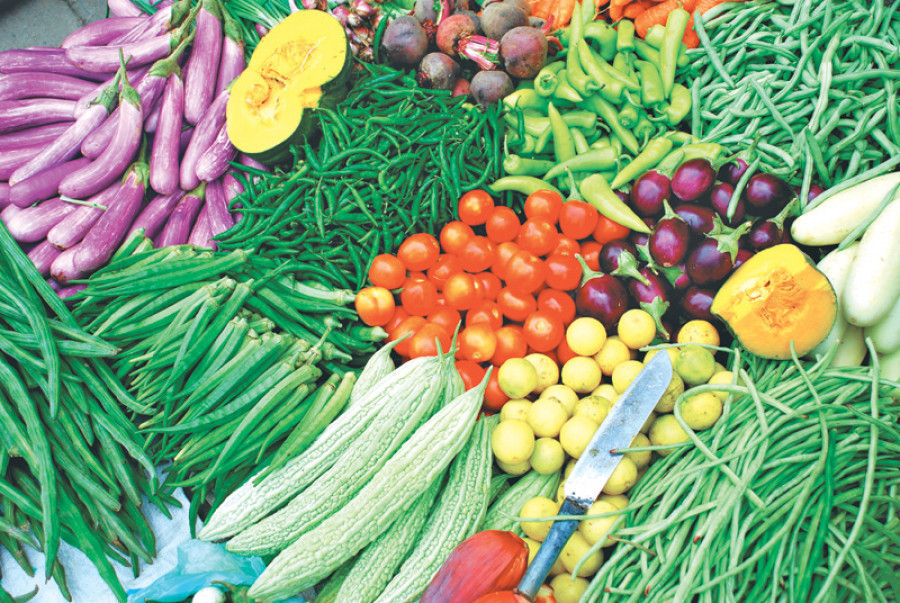Editorial
Nothing organic about it
Karnali can dream of a viable organic future only if it is first ready to address local water- and land-related issues.
Talk of irony! Declared an ‘organic province’ in 2018, most districts of Karnali Province produce organic fruits and vegetables in order to promote healthy and environmentally friendly practices. On the other hand, it imports large quantities of ‘dirty’ fruits, veggies, cereals and grains from India and China to meet growing demand. As a result, people living in a so-called organic province have been sustaining themselves on imported pesticide-laden agricultural products. These imports are cheaper, too, compared to local organics.
The problem is that the far-flung province lacks adequate access to infrastructure, programmes and clear policies to support organic farming. The authorities hastily deemed it organic without any preparations to establish a pesticide testing lab or giving an alternative to the farmers, such as organic compost and plant fertilisers. The soil laboratory in Surkhet has been out of operation due to inadequate human resources and machinery. The province did allocate a budget for the lab in 2019-20. But the money, instead of supporting the beneficiaries, went back to state coffers. Since that fiscal year, around 70 million budget allocated for the work has gone unspent.
The idea behind the organic province was for good—encouraging healthy and environmentally friendly products and producing high-value organic foods. Chemical fertilisers lead not only to short-term health problems but also long-term ones like cancer, tumours, blindness and kidney diseases. But the current approach has only slashed production and afflicted farmers. Their products are of inferior quality and profit is elusive, and there is a massive demand for imported fertiliser-laced fruits and vegetables. This is not without reason. While the price of local onions is Rs100 a kg, imported ones are sold at Rs80 a kg. Similarly, local vegetables meet the demand only for two months, and they must rely on imported food for the rest of the year.
A successful transition to organic farming needs meticulous research, awareness among farmers, and practices involving researchers, farmers, experts and policymakers. Sikkim in India is a good example of this. Declared the first organic state in the world in 2003, the Food and Agricultural Organisation honoured it for its organic mission of providing seeds, manure and training to farmers who are into organic farming. It also ensured access to alternative fertilisers that come from plants. But the Karnali government’s organic scheme has become another political gimmick, as it has neither controlled pesticides in imported agricultural products nor does it have any plans to help the province produce enough organic foods.
The province can dream of a viable organic future only if it is first ready to address local water- and land-related issues. According to the Ministry of Land Management, Agriculture and Cooperatives of Karnali, the province has 299,339 hectares of farmland, but only 73 percent of that is being used, and less than a third of the farmlands have access to irrigation. As experts suggest, the authorities should focus on enhancing the land’s productivity and improving irrigation systems. Similarly, better road connectivity to Humla, Dolpa and other districts could help with the province’s food security. Currently, food often has to be flown into these districts. This can limit food imports, gradually leading to substantial agricultural production in the province. Self-sustenance in agriculture and food security could then open doors for organic farming practices and food markets.




 13.12°C Kathmandu
13.12°C Kathmandu














